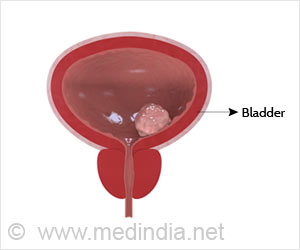The immune cells in the urine of bladder cancer patients accurately reflect those in the tumour environment, stated study.

The study, which was also supported by the National Institute for Health Research, looked at 32 patients with bladder cancer that had invaded the muscle wall. Urine and blood samples were taken on the day of surgery to remove their tumour, and these were compared with both their tumour and healthy bladder tissue.
The researchers at University College London (UCL) Cancer Institute and UCL Hospitals were able to identify T cells in the urine, which are usually absent in healthy individuals. Crucially, the T cells matched those found within the tumour environment of the bladder cancer, regardless of cancer stage and treatment history.***
Dr Sophia Wong, co-lead author from UCL, said: "This valuable information could be used to discover immunotherapy targets and aid the design of combination treatments that exploit different components of the immune system.
"This research looked at a single time point, so clinical trials that include urine analysis over time are now needed to find out whether urine-derived T cells could tell us if a patient is responding to treatment, or be an early warning that a switch in therapy is required." The study also identified a relationship between urine-derived T cells and patients' chance of survival, as the disease was more likely to return in people with higher numbers of these cells. This indicates that urine-derived T cells may therefore also serve as a prognostic marker. There are around 10,300 people in the UK diagnosed with bladder cancer every year. And it can be difficult to treat; just more than half (53%) of patients survive their disease for 5 years or more.
Professor Peter Johnson, an immunotherapy expert at the Cancer Research UK Southampton Centre, said: "Immunotherapy holds great promise for cancers that are difficult to treat, but a greater knowledge of the complex immune system is required to unlock their potential. By using a non-invasive urine test to profile the bladder cancer immune landscape, this small study could help us understand why only a fraction of patients respond to immunotherapy. "If the findings are supported by larger studies, this early research suggests that urine liquid biopsies could one day help stratify patients for immunotherapy, identifying those most likely to benefit, while sparing unnecessary treatment in those who likely won't."
Advertisement















